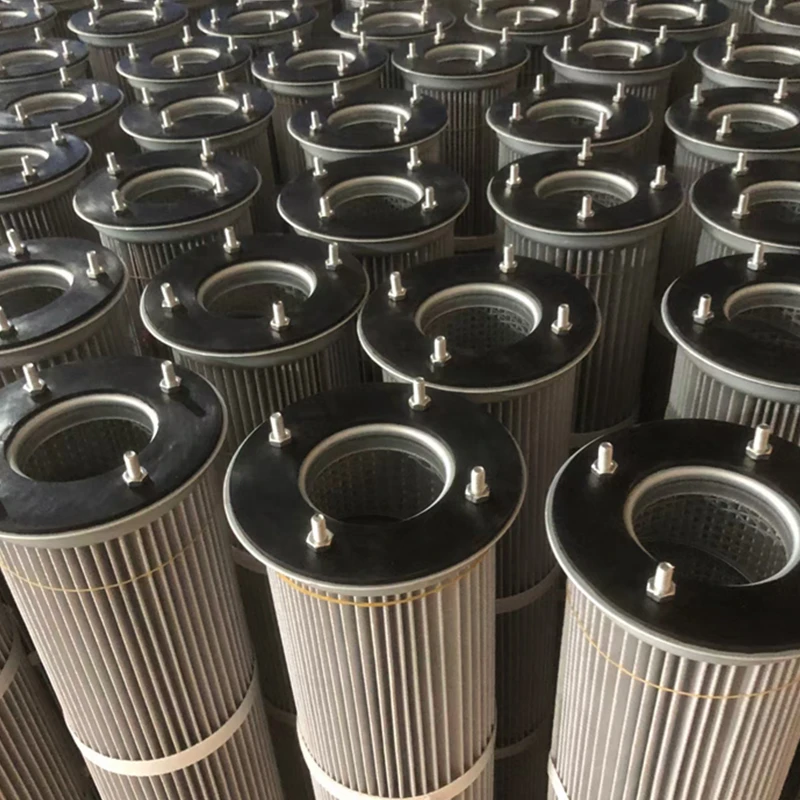 Tel:
+8615930870079
Tel:
+8615930870079
Οκτ . 02, 2024 08:56 Back to list
Understanding Gas Turbine Inlet Filters and Their Impact on Performance
The Importance of Gas Turbine Inlet Filters
Gas turbines are pivotal in modern energy production, serving as the backbone of power plants as well as being integral to aircraft propulsion systems. To maximize their efficiency and longevity, proper maintenance and protective measures are essential. One crucial aspect often overlooked is the inlet filter system, which plays a significant role in safeguarding the turbine from contaminants. This article delves into the importance of gas turbine inlet filters, their working principles, types, maintenance, and impacts on turbine performance.
Working Principle of Gas Turbine Inlet Filters
Gas turbine inlet filters are designed to purify the air entering the turbine. The combustion process in gas turbines requires a continuous supply of air, and any impurities—such as dust, dirt, and water—can adversely affect the turbine's performance. When air enters the turbine, it is subjected to high temperatures and pressures; thus, any contaminants could cause erosion, corrosion, or fouling within the engine. Therefore, filters are employed to trap these harmful particles, ensuring that only clean air is introduced into the combustion chamber.
Types of Inlet Filters
There are several types of inlet filters commonly used for gas turbines, each varying in design, efficiency, and application
1. Panel Filters These are commonly used in both industrial and aerospace applications. Made of synthetic fibers or fiberglass, panel filters offer a high dirt-holding capacity and low pressure drop, making them an efficient choice for gas turbine applications.
2. Bag Filters Often used in more demanding environments, bag filters provide a higher surface area for capturing particles and can handle larger volumes of air. They are particularly suitable for situations where dust concentrations are high.
3. Cyclone Separators These filters utilize centrifugal force to separate larger particles from the air stream. While they are less effective for fine particles, they are an excellent pre-filter option in environments with heavy contamination.
gas turbine inlet filter

4. Electrostatic Precipitators These advanced filters use electrostatic forces to trap particles. They can effectively eliminate a wide range of sizes and types of contaminants but are typically more expensive and require more maintenance.
Maintenance and Monitoring
To ensure optimal performance, regular maintenance of gas turbine inlet filters is crucial. Over time, filters can become saturated with dust and dirt, resulting in restricted airflow and decreased efficiency. Scheduled maintenance practices include visual inspections, performance assessments, and replacement or cleaning of filters as needed.
Evacuation of contaminants from the filters must be done without damaging the filtration media. A proactive approach can help identify issues before they escalate, ensuring the longevity of both the filter and the turbine.
Impact on Turbine Performance
The efficiency of a gas turbine is directly related to the cleanliness of the air entering it. Clogged or ineffective filters can lead to several problems, including reduced efficiency, increased fuel consumption, and even unplanned downtime due to component failures. It has been established that a clean air supply can enhance the performance of a turbine by maintaining optimal operating temperatures and pressure ratios.
Moreover, with the rise of stricter environmental regulations, maintaining air quality has become a priority. The use of high-efficiency filters can not only improve turbine performance but can also help power plants comply with emission standards by ensuring cleaner combustion processes.
Conclusion
In conclusion, gas turbine inlet filters are instrumental in ensuring the safe and efficient operation of gas turbines. By preventing contaminants from entering the turbine, these filters protect crucial components, enhance operational efficiency, and help achieve compliance with environmental regulations. As energy demands grow and technology advances, the importance of maintaining an effective inlet filtering system remains paramount in the pursuit of clean, reliable energy. Proper attention to gas turbine inlet filters will ultimately contribute to longer lifespan, improved performance, and reduced operational costs of turbines, thereby benefitting both operators and the environment.
-
Types and Applications of Air Filtration CartridgesNewsJul.28,2025
-
The Role of Gas Turbine FiltersNewsJul.28,2025
-
Mastering Air Filter Cartridge UseNewsJul.28,2025
-
Advanced Turbine Filters for Modern Gas TurbinesNewsJul.28,2025
-
Cellulose Air Filter Cartridge Advantages in Dust FiltrationNewsJul.28,2025
-
Cellulose Filters for Air Particle ReductionNewsJul.28,2025

 Email:
Email:





